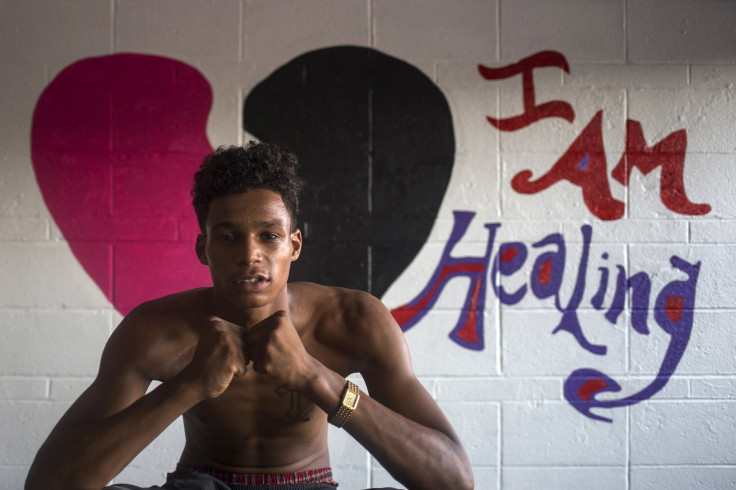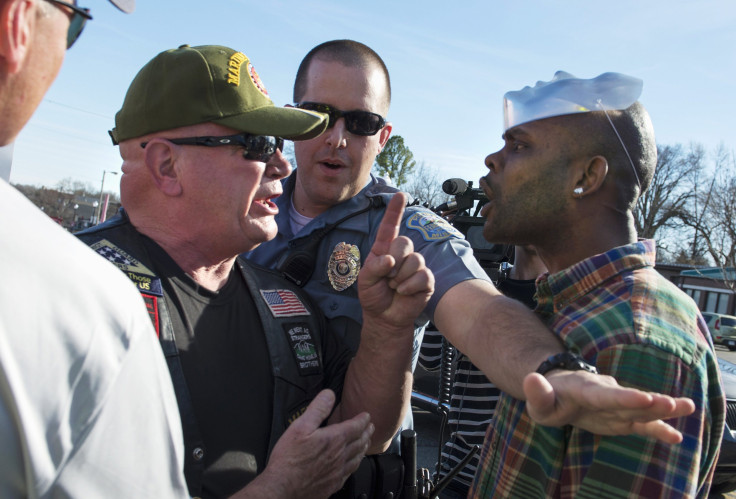We Are All Ferguson: City Comes Together One Year After Michael Brown's Death

Nearly one year ago, the nation watched as Ferguson, Missouri, burned. Stores were looted, cars were set on fire and crowds of mourning residents poured out onto the streets. An unarmed black man, Michael Brown, had been shot by a white police officer, and the city was unraveling.
These days, Ferguson looks a lot different, and in preparation for the upcoming anniversary of Brown’s death, clergy leaders said they were coming together for a week of workshops and conferences to encourage thoughtful discussions on the many social problems that led up to the fatal shooting. Brown's death sparked a national debate about racial inequalities and police brutality, and Ferguson has been slowly recovering ever since. The event scheduled this week, called We Are All Ferguson, featured community business leaders, schools, nonprofits and clergy members leading a series of panels and discussions that sought to encourage, educate and inspire residents on how to heal their wounded community.
The event was created through a partnership between two Ferguson clergy leaders: Pastor Willis Johnson of Wellspring Church and the Rev. Steve Lawler of St. Stephen’s Episcopal Church. Lawler said that for years, there had been talks about holding such an event, but Brown’s tragic death had accelerated the need for the We Are All Ferguson discussions.
“Michael Brown is an example of what challenges a lot of young people, black men in our community face,” said Lawler, who is white. “He was going to do additional college at a technical school but he wasn’t having a lot of success in finding a part-time job and he’s not alone. … [The event is about] how can you do things to give the ‘Michael Browns’ of our community more opportunities.”
Each day the event had a different focus, with topics ranging from business to faith to social justice. The event kicked off Sunday with the unveiling of the Center for Social Empowerment Justice, an educational annex of Wellspring Church that will act as a hub for community solutions and study of urban context issues. Monday featured a back-to-school supply drive and distribution, and roughly 250 backpacks stocked with school supplies went quickly. Children also were given free haircuts and health screenings. A panel called “Incubate Ferguson: What’s Next in Business” occurred Tuesday, and was aimed at people who were interested in discovering resources for launching, growing or relocating businesses in Ferguson. Wednesday and Thursday covered discussions for faith leaders about how to handle situations of crisis and injustice.
Getting back to school supplies ready @WellspringSTL for #WeAreAllFerguson. pic.twitter.com/w1GJaUiHvF
— Carrie Z (@velo_city) August 3, 2015
On Friday and Saturday, black scholars were slated to discuss the significance of activism in black communities, and Lawler expected the turnout for those discussions to be the largest. Among other speakers, J. Kameron Carter, an associate professor of systematic theology and black church studies, was scheduled to discuss connections between Ferguson and Charleston, South Carolina, where a gunman recently targeted a historically black church and murdered nine African-Americans. For Carter, conferences like We Are All Ferguson serve as a space for the community to eulogize and continue talking about racial issues.
“This nation, and by that I mean the formal structures of government, doesn’t know how to mourn,” said Carter, who is black. “We don’t know how to eulogize. It’s placed once again on the backs of the very communities whose many participants are being killed to turn around and lead a nation in mourning and eulogizing, and that’s what these conferences mean to me.”
Ferguson grappled with racial injustice long before Brown's death. Despite the fact that two-thirds of Ferguson's residents are black, most of the city's elected officials are white, the New York Times reported last year. In 2014, only three of the city's 53 police officers were black, and many residents said racial tensions had fueled an overzealous police force that targeted blacks for minor crimes that resulted in high fines or jail time. A St. Louis County grand jury decided in November 2014 not to indict Officer Darren Wilson in Brown's Aug. 9, 2014, death.
As the community has taken steps to recover from Brown's shooting and the subsequent protests and riots, We Are All Ferguson was an opportunity to reflect and move forward, Lawler said.
“The tough moments are having those hard conversations with other white people, without it turning into a confrontation,” Lawler said. “I shouldn’t be surprised when these things happen. Even before Brown was killed, there were a lot of challenges in racial relationships."
Day 5 of #WeAreAllFerguson completed. Continued conversations with pastors and lay leaders exploring Ministry on the Edge. Inspired!!!
— An Unlikely Priest (@fr_steve) August 7, 2015Lawler said the churches plan to hold events like We Are All Ferguson again in the future, after community leaders saw the need for resources and a place to talk about issues.
“From Freddie Gray’s death [in Baltimore] to Michael Brown’s killing, there’s been a parade of black death,” Carter said. “And as long as that parade keeps happening, we need to keep talking.”
© Copyright IBTimes 2024. All rights reserved.












